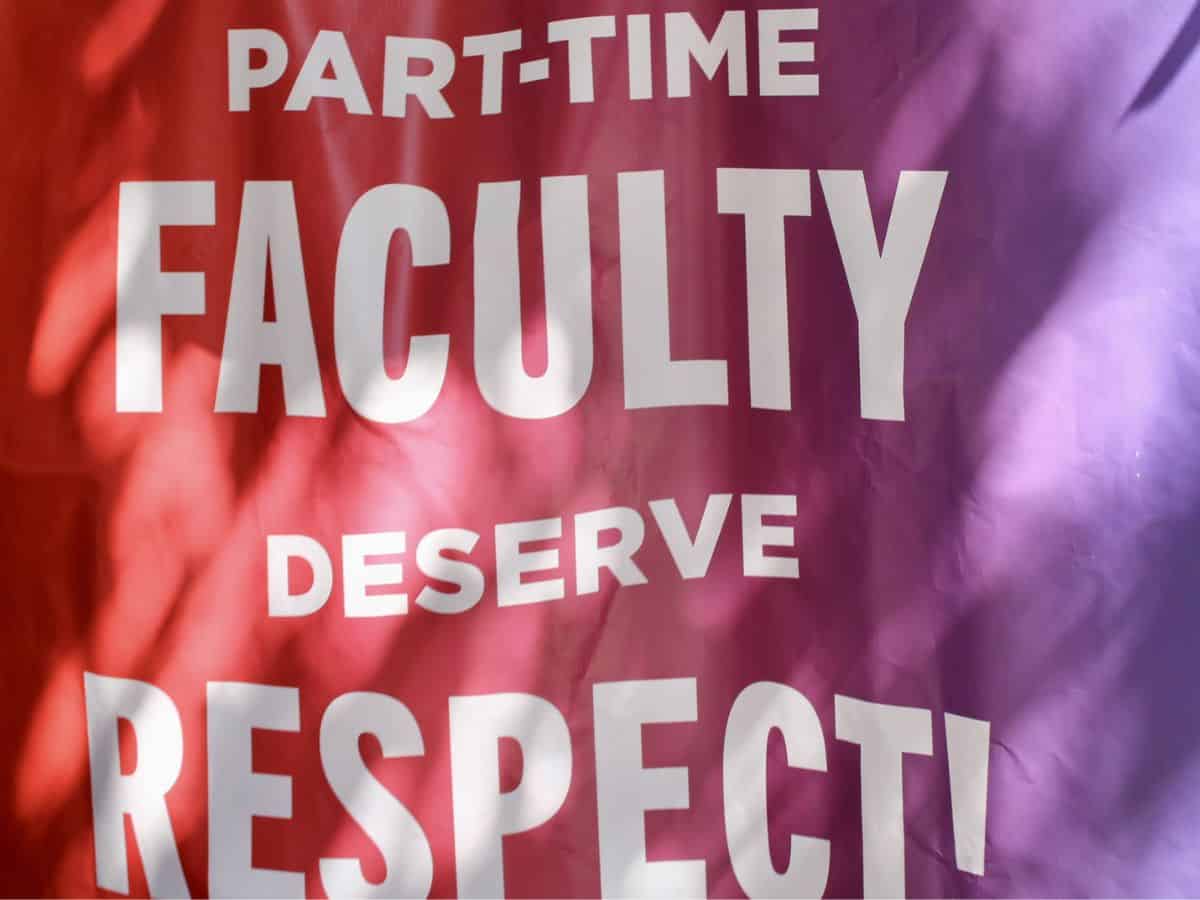By Manasa
Hyderabad: Part-time lecturers in Telangana universities are facing a growing wave of discontent as they grapple with unfair labour practices and inadequate compensation. Despite possessing qualifications on par with regular faculty, part-time lecturers are burdened with excessive workloads while receiving a fraction of the salary and benefits enjoyed by their full-time counterparts.
The selection process for part-time lecturers at universities in Telangana is identical to that of assistant professors (both contract and regular), involving written exams, interviews, and demonstrations. However, the workload assigned to part-time lecturers is significantly similar, with a maximum of 15 classes per week whereas it is 16 classes per week for contract assistant professors.
For the same amount of work, part-time lecturers have a huge difference in the salary and benefits enjoyed by contract and regular assistant professors. This is a blatant injustice that undermines the value of part-time faculty contributions to the university.
The policy change
The exploitation of part-time lecturers is not confined to Osmania University but is a systemic issue prevalent throughout the universities and colleges under the aegis of the Telangana government.
After the formation of the state on June 2, 2014, the government invalidated the appointments of contract assistant professors and other contract positions, leading to a greater reliance on part-time lecturers.
This policy change has had a detrimental impact on the functioning of universities in Telangana. It has created a backlog of vacant faculty positions, leading to increased workloads for part-time lecturers. Additionally, it has limited opportunities for career advancement for part-time lecturers, who are often denied the chance to transition to regular and contract faculty positions.
Prior to the formation of Telangana, part-time lecturers in the state’s universities were eligible for automatic upgrade to assistant professor positions if they met the required workload criteria. However, this policy was abruptly changed by the then ruling BRS party after the state’s formation.
The previous government assumed control over faculty appointments, effectively halting the universities’ ability to hire new faculty without their intervention. The BRS government’s actions have not only affected part-time lecturers but have also had a broader impact on the higher education landscape in Telangana.
Despite possessing qualifications that are on par with regular assistant professors, part-time lecturers are often relegated to lesser roles due to a lack of official notifications.
Group-I aspirants urge Telangana govt to delay mains examination
No paid holidays
In addition to excessive workloads, part-time lecturers are not paid generally in holidays, including state and national holidays like independence day and republic days. This lack of recognition for the work done by part time lecturers is a further insult to the profession.
It is difficult to imagine the challenges faced by part-time lecturers who work in government degree colleges and prestigious university colleges. Despite their dedication and pride at work, they are often treated with disrespect and exploited for their labour. The struggle to be paid fairly and recognized for their contributions is a constant source of frustration and disappointment.
Situation in Osmania University
The problem of exploitation of part-time lecturers is particularly acute at the Osmania University. While there are approximately 200 part-time lecturers working at the university, there are also over 250 vacant faculty positions. This disparity presents a clear opportunity to address the grievances of part-time lecturers by absorbing them into these vacant positions.
Experts have suggested a practical solution to this problem. Part-time lecturers with a workload of 15 classes per week could be upgraded to contract assistant professor positions, while those with a workload of less than 10 classes per week could be paid a consolidated amount. This approach would not only provide job security and better compensation for part-time lecturers but would also help to address the shortage of faculty at the university.
A ray of hope
Recently, the IT and industries minister, D Sridhar Babu, has directed the principal secretary of higher education to explore ways to improve the conditions of guest lecturers, including increasing their honorary salary and job security. However, the implementation of these measures remains uncertain, and it is unclear whether they will adequately address the systemic issues faced by part-time lecturers.
As the days and years pass, part-time lecturers continue to hope for a government that will finally address their grievances and provide them with the fair treatment they deserve.
The previous government’s disregard for the needs of educated youth, its outsourcing of jobs, and its reliance on contract employees has created a precarious environment for many workers.
High time for change
The fall of the previous government and the formation of a new administration offered hope for a better future. However, the current government must not repeat the mistakes of its predecessor. It is imperative that the government listen to the concerns of part-time lecturers and take decisive action to address their grievances. The part time lecturers are in hope that the present government will not turn its back, but will instead work to create a more equitable and a just higher education system.
(Manasa is a teaching faculty at the Department of Journalism, Osmania University. The opinions expressed in this article are her own)







